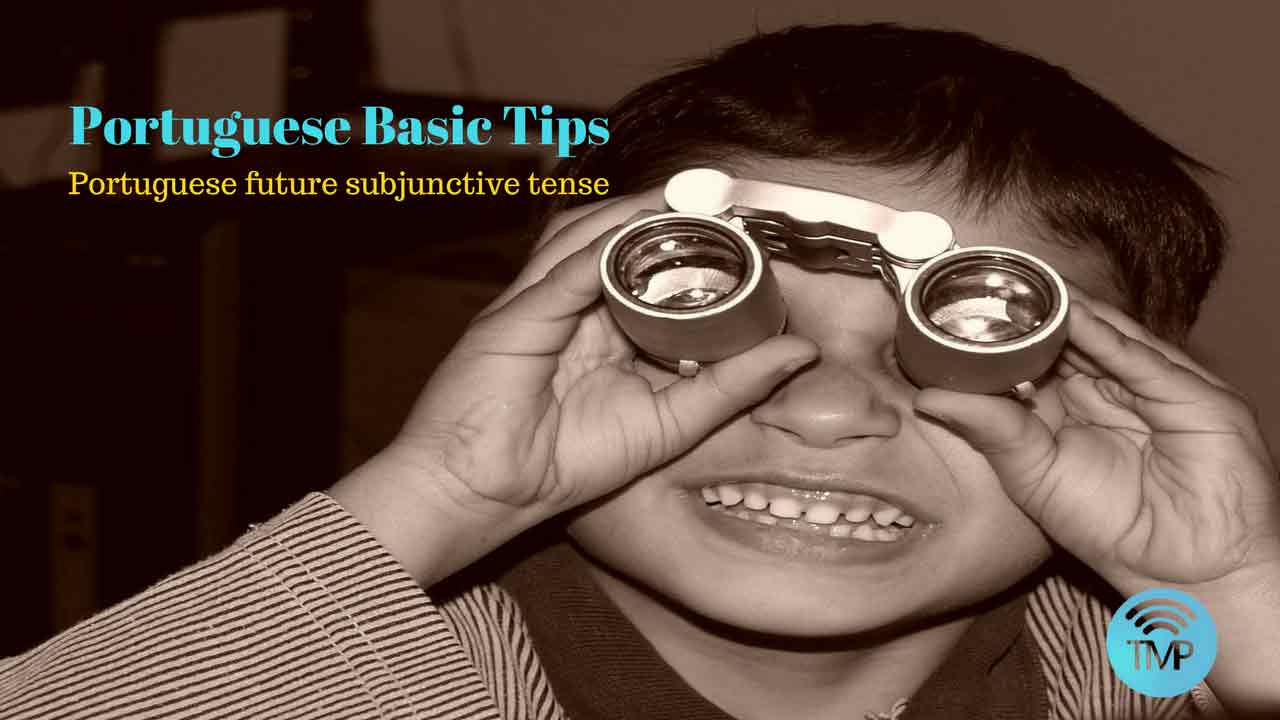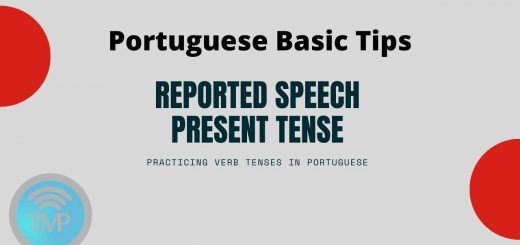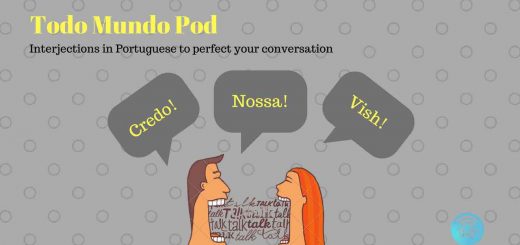Portuguese future subjunctive tense

Portuguese future subjunctive tense – Portuguese verb conjugation
Hello and welcome to our Portuguese Basic Tips called Portuguese future subjunctive tense
Well, on today’s episode, we’ll speak about Portuguese future subjunctive tense in our series about this topic.
If you haven’t listened to the first two episodes yet, I suggest you search for their links on this episode’s page.
As you already know, we use subjunctive tense in Portuguese to express “possibility”, to express “an assumption idea”. Something that you’re not convinced that will really happen.
Click on the link to visit our first episode of this series called Portuguese present subjunctive tense
Click on the link and have access to the second episode of this series called Portuguese past subjunctive tense
On this basis, we can say that we use Portuguese future subjunctive tense to indicate a hypothetical situation that will take place in the future.
For instance:
– Quando eu falar, você irá entender (When I speak, you will understand it).
– Se eu disser, você não terá dúvidas (If I say so, you will have no doubts.)
That’s not a rule, but it’s pretty common to us using the words “quando” (when) and “se” (if) accompanied by the verb in the future subjunctive form.
So, let’s practice a little bit, combining a few Portuguese verbs in the future subjunctive tense.
During this exercise I’ll give you some additional explanations about it.
Cantar Verb – Portuguese future subjunctive tense
| Cantar | Portuguese future subjunctive tense |
| (Quando) eu | Cantar |
| (Quando) tu | Cantares |
| (Quando) ele | Cantar |
| (Quando) nós | Cantarmos |
| (Quando) vós | Cantardes |
| (Quando) eles | Cantarem |
Now, repeat with me the verb “vender”, ending with “er”.
Vender Verb (To sell) – Portuguese verb conjugation
| Vender (To sell) | Portuguese future subjunctive tense |
| (Quando) eu | Vender |
| (Quando) tu | Venderes |
| (Quando) ele | Vender |
| (Quando) nós | Vendermos |
| (Quando) vós | Venderdes |
| (Quando) eles | Venderem |
At this time of this podcast, you may think that you can combine all verbs ending with “er” as we did before in “vender verb”. But let’s remember that in Portuguese we have some irregular verbs. So, you’ll often see people – even Brazilian people – using the verb “ver” (to see) like that “quando eu ver, te aviso” (When I see it, I’ll let you know). That’s not correct!
In order to avoid this kind of conjugation, let’s practice the right way of doing so with the irregular verb “ver” in the future tense.
Ver Verb (To see) – Portuguese future subjunctive tense
| Ver (To see) | Portuguese future subjunctive tense |
| (Quando) eu | Vir |
| (Quando) tu | Vires |
| (Quando) ele | Vir |
| (Quando) nós | Virmos |
| (Quando) vós | Virdes |
| (Quando) eles | Virem |
And to finish this, let’s try the verb “partir”, ending with “ir”. It’s pretty much the same as we did with the irregular verb “ver”.
Repeat with me:
Partir verb (To leave) – Portuguese future subjunctive tense
| Partir (to leave) | Portuguese future subjunctive tense |
| (Se) eu | Partir |
| (Se) tu | Partires |
| (Se) ele | Partir |
| (Se) nós | Partirmos |
| (Se) vós | Partirdes |
| (Se) eles | Partirem |
Become a Premium Member and download our full transcripts
Click on the next link to learn more about Portuguese subjunctive verb conjugation (Portuguese only)
That’s enough for today.
I hope you like it!
Marcos Sales
Podcast (portuguesebasictips): Play in new window | Download







Recent Comments